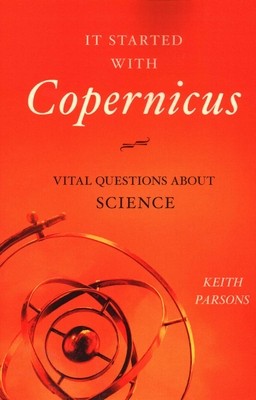
- We will send in 10–14 business days.
- Author: Keith Parsons
- Publisher: Prometheus Books
- Year: 2014
- Pages: 429
- ISBN-10: 1616149299
- ISBN-13: 9781616149291
- Format: 15.2 x 22.6 x 3.1 cm, minkšti viršeliai
- Language: English
- SAVE -10% with code: EXTRA
Reviews
Description
A unique approach to the philosophy of science that focuses on the liveliest and most important controversies surrounding science Is science more rational or objective than any other intellectual endeavor? Are scientific theories accurate depictions of reality or just useful devices for manipulating the environment? These core questions are the focus of this unique approach to the philosophy of science. Unlike standard textbooks, this book does not attempt a comprehensive review of the entire field, but makes a selection of the most vibrant debates and issues. The author tackles such stimulating questions as: Can science meet the challenges of skeptics? Should science address questions traditionally reserved for philosophy and religion? Further, does science leave room for human values, free will, and moral responsibility? Written in an accessible, jargon-free style, the text succinctly presents complex ideas in an easily understandable fashion. By using numerous examples taken from diverse areas such as evolutionary theory, paleontology, and astronomy, the author piques readers' curiosity in current scientific controversies. Concise bibliographic essays at the end of each chapter invite readers to sample ideas different from the ones offered in the text and to explore the range of opinions on each topic. Rigorous yet highly readable, this excellent invitation to the philosophy of science makes a convincing case that understanding the nature of science is essential for understanding life itself.
EXTRA 10 % discount with code: EXTRA
The promotion ends in 21d.11:03:46
The discount code is valid when purchasing from 10 €. Discounts do not stack.
- Author: Keith Parsons
- Publisher: Prometheus Books
- Year: 2014
- Pages: 429
- ISBN-10: 1616149299
- ISBN-13: 9781616149291
- Format: 15.2 x 22.6 x 3.1 cm, minkšti viršeliai
- Language: English English
A unique approach to the philosophy of science that focuses on the liveliest and most important controversies surrounding science Is science more rational or objective than any other intellectual endeavor? Are scientific theories accurate depictions of reality or just useful devices for manipulating the environment? These core questions are the focus of this unique approach to the philosophy of science. Unlike standard textbooks, this book does not attempt a comprehensive review of the entire field, but makes a selection of the most vibrant debates and issues. The author tackles such stimulating questions as: Can science meet the challenges of skeptics? Should science address questions traditionally reserved for philosophy and religion? Further, does science leave room for human values, free will, and moral responsibility? Written in an accessible, jargon-free style, the text succinctly presents complex ideas in an easily understandable fashion. By using numerous examples taken from diverse areas such as evolutionary theory, paleontology, and astronomy, the author piques readers' curiosity in current scientific controversies. Concise bibliographic essays at the end of each chapter invite readers to sample ideas different from the ones offered in the text and to explore the range of opinions on each topic. Rigorous yet highly readable, this excellent invitation to the philosophy of science makes a convincing case that understanding the nature of science is essential for understanding life itself.


Reviews